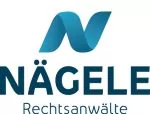As in many areas, the Covid 19 pandemic also became the driving force behind digitalization in Liechtenstein company law.
For example, the Covid-19-VJBG made it possible to hold shareholders' meetings without the physical presence of the participants and to pass resolutions by circulation regardless of the number of members.
Prior to this, the shareholders' meeting of a Liechtenstein public limited company that is not listed could either only be held with the physical presence of the shareholders or the resolutions could be passed in the form of a circular resolution without the physical presence of the participants.
The latter, however, requires that the shareholders' meeting consists of less than 20 members and that the expressly formulated resolutions are sent to the participants by registered letter as well as that no shareholder requests a meeting and oral deliberation.
A virtual shareholders' meeting (without the physical presence of the shareholders) was previously only permissible in the case of public limited companies listed in the EEA if this was provided for in the articles of association.
However, as the Covid-19-VJBG is a temporary law until 30 June 2022 and a virtual shareholders' meeting were otherwise only possible for public limited companies listed in the EEA, the following changes will be introduced from 1 August 2022:
- General possibility of a virtual shareholders' meeting
The shareholders' meeting, including the passing of resolutions, may be held by electronic means, irrespective of the number of shareholders, even without the physical presence of the shareholders and without the place of the meeting, provided that this is provided for in the articles of association.
- Public certification
However, a public notarization of a virtual shareholders' meeting (for example, in the case of an amendment to the articles of association) is only possible if the notarizing person is present at the place of the meeting. In addition to the chairperson and the secretary, it is therefore sufficient for a notary public to be present; the shareholders do not have to be physically present.
The notarization of a resolution at a meeting without the place of the meeting is therefore (currently) not permitted.
- Convening
It is essential that the convening notice for the shareholders' meeting must already contain the exact modalities for participation and voting.
This includes, in particular, information on the technical means required to participate and vote at the meeting.
- Technical problems
In the event that technical problems arise in a virtual general meeting and the meeting cannot therefore be properly conducted, the meeting must be repeated.
However, those resolutions that were passed before the technical problems occurred remain valid.
- Outlook: Digitization Directive
The provisions for holding virtual meetings described above are, however, only an "interim solution".
Within the scope of the implementation of Directive (EU) 2019/1151 (the so-called Digitization Directive), extensive and detailed provisions in connection with digitization in the area of company and commercial register law will be created.
From today's perspective, the implementation of the Digitization Directive will take place by 1 January 2024.
The content of this article is intended to provide a general guide to the subject matter. Specialist advice should be sought about your specific circumstances.

